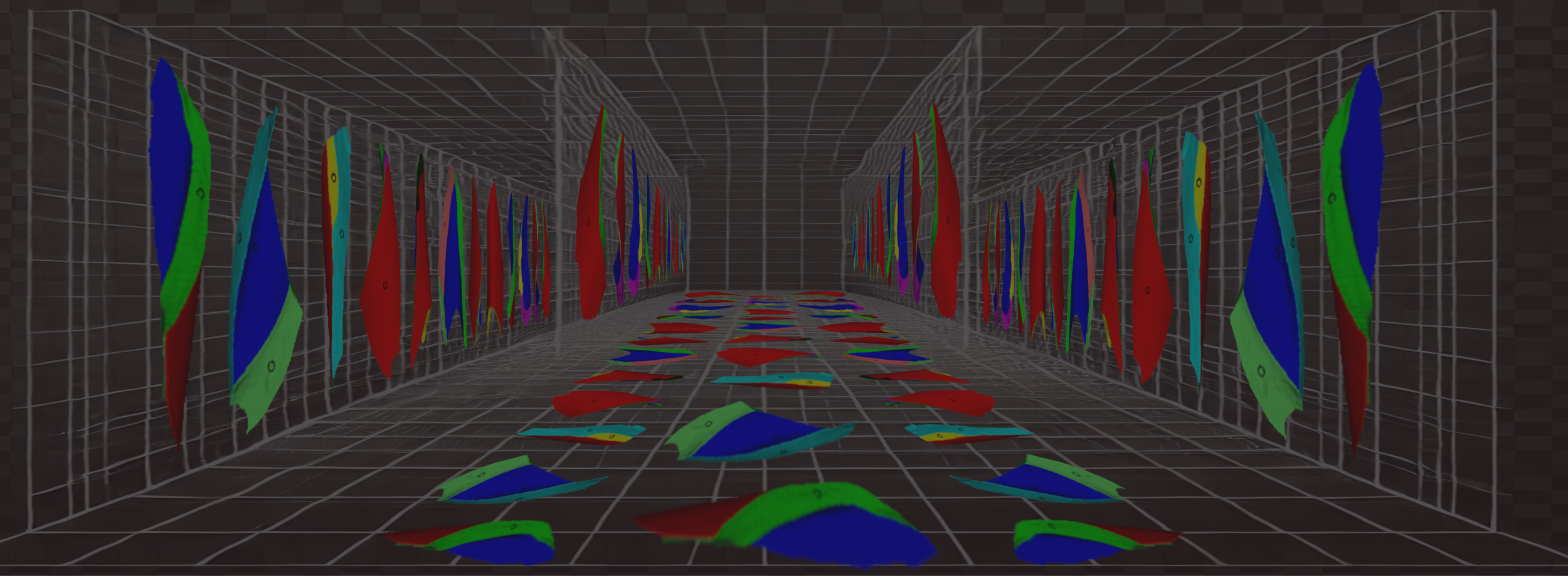
Decoding the Past through Mathematics and Anthropology
What We Do
Our Mission
To revolutionize the study of humanity by uniting mathematical innovation with anthropological insight, addressing questions about our origins, evolution, and the complexities of human behavior through time.
About Us
At AMAAZE, we are revolutionizing the study of humanity by uniting mathematical insight and computer science with anthropological insight. Whether studying fossils, lithics, pottery, or other remnants of the past, archaeological analysis is grounded in identifying patterns and frequencies, which is inherently mathematical. Early research was founded on the observation and qualitative description of these patterns. Over the last several decades, the discipline has increasingly sought quantitative data analytical methods. Powerful tools such as 3d modeling, geometric morphometrics, and machine learning allows us to quickly capture and process massive amounts of information that cannot practically be gathered from physical measurements. Together, anthropologists, mathematicians, and computer scientists leverage their expertise to truly optimize these tools, the implications of which are expected to impact the current understanding of early human prehistory, culture, and origins.
While AMAAZE began with a focus on archaeology and zooarchaeology — as our name suggests — we have since expanded to include biological anthropology. For example, we have current members working on dental morphology in non-human primates. We also welcome contributions from other subdisciplines within anthropology, such as ancient DNA research and beyond. Anyone whose work aligns with our mission and approach is invited to join our community.
Our Focus
Data Sharing and Publications
At AMAAZE, we are committed to making data, such as computer code, 3D models, and extracted shape data, openly accessible. Our community actively shares resources on an ongoing basis. While some data must remain restricted due to partner agreements or ethical considerations, we ensure metadata and source information are included wherever possible. We encourage our community to embrace principles of FAIR (Findable, Accessible, Interoperable, Reusable) and CARE (Collective Benefit, Authority to Control, Responsibility, and Ethics) data stewardship to ensure shared research benefits for the global community. Members can share links to their data and code through AMAAZE’s platform, enhancing visibility and accessibility.
Replication and Reproducibility
We uphold the principles of replication and reproducibility as fundamental to scientific progress. Following Barba et al. (2018), we define reproducibility as the ability to apply protocols developed by a research team on their — the original team’s — data. Replicability is the ability to apply the original research team’s methods to a unique set of a data and, presumably, achieve the same results. By sharing data, comprehensive metadata, detailed methodologies, and open-source tools, we aim to ensure that our research can be validated and extended by others. Our commitment to transparency fosters trust within the scientific community and promotes the advancement of knowledge.
We encourage consortium members to prioritize replicable workflows and reproducible outcomes in their research. By leveraging FAIR (Findable, Accessible, Interoperable, Reusable) and CARE (Collective Benefit, Authority to Control, Responsibility, Ethics) principles, we aim to support reproducibility while respecting ethical considerations and partner agreements. Whether data and methodologies are hosted on our platform or external repositories, we provide visibility and resources to amplify their accessibility and impact.
Join Us
AMAAZE is an open, collaborative consortium. We are a gathering place for researchers and labs working at the intersection of mathematics, computer science, and anthropology.
Membership is currently informal and free because we believe researchers should have access to one another and to shared research without financial barriers. Our community creates an energetic, positive environment that fosters collaboration and groundbreaking research. Working together through our combined expertise, we optimize resources that we otherwise would not have access to and increase our impact within our respective disciplines. By leveraging domain expertise from mathematics, computer science, and anthropology, we address questions in new ways that have the potential to redefine our understanding of human prehistory, culture, and origins.
If you are interested in joining this consortium or collaborating with us, please contact us at AMAAZE.contact@gmail.com or fill out a membership/partnership form.
“Everyone I worked with in AMAAZE was fantastic, and their passion and expertise in such varied fields made for a truly special research environment.”
— Max Meyer, Undergraduate Student
What We Achieve
Established in 2019, AMAAZE brings together anthropologists, mathematicians, and computer scientists to advance analytical methods in archaeology and zooarchaeology.
Promotes open access resources by making data, 3D models, and computer code publicly available through our website and collaborators' platforms.
Fosters interdisciplinary research leveraging diverse expertise to optimize resources and amplify impact across disciplines.
Advocates for replicable and reproducible research practices by developing rigorous protocols, fostering standardized methodologies, and encouraging interdisciplinary collaboration to ensure consistency and reliability across studies.
